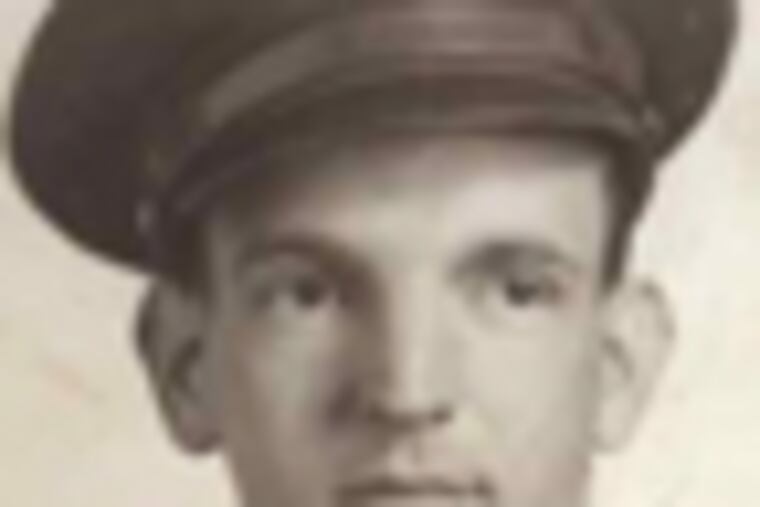Walter P. Johnson, 93; helped liberate camps
Walter P. Johnson, 93, of Woodbury, an Army combat medic during World War II who was involved in the Battle of the Bulge and was part of the armored division that liberated the Nazi concentration camps at Mauthausen and Gusen, Austria, died Thursday, June 24, at the Shady Lane Nursing Home in Clarksboro after complications from hip surgery.

Walter P. Johnson, 93, of Woodbury, an Army combat medic during World War II who was involved in the Battle of the Bulge and was part of the armored division that liberated the Nazi concentration camps at Mauthausen and Gusen, Austria, died Thursday, June 24, at the Shady Lane Nursing Home in Clarksboro after complications from hip surgery.
Returning to South Jersey after the war, Mr. Johnson went back to his job as an ironworker. He helped build many of Philadelphia's landmarks, including the Commodore Barry Bridge, the Girard Avenue Bridge, and One Liberty Place, his last project before he retired in 1988.
"He loved it," his son Wayne said about One Liberty Place. "He took it from the ground to the needle."
Mr. Johnson retired from Cornell & Co. as an iron foreman in 1988, after more than 40 years of service.
He was born and raised in Virginia's Shenandoah Valley. Because the closest high school was many miles from his home, Mr. Johnson completed his education only through sixth grade.
One summer he grew a tobacco crop and sold it for $24.
"He realized there was no future in farming," his son said. So Mr. Johnson moved north to Woodbury, where his older brother was working. Mr. Johnson found a job as a truck driver delivering cinder blocks before doing a ironwork apprenticeship.
In 1942, he joined the Army and trained as a medical corpsman. He was sent overseas with the 11th Armored "Thunderbolt" Division.
With just a backpack of medical supplies, Mr. Johnson trekked the snow-covered Ardennes woods during the Battle of the Bulge.
After retreating because of enemy attacks, he and other troops came back to where they had left their tanks. Inside they found fellow soldiers who had been killed and were "frozen solid," Wayne Johnson remembered his father recounting.
"He had to break their legs and arms to get them out," his son said. "It was emotionally too difficult for him."
Mr. Johnson's division was part of the first rescue groups to arrive at the Mauthausen-Gusen concentration camps. He told his family that the hardest part had been not being able to give the prisoners as much food as they wanted; their bodies would have gone into shock.
The rest of his life, Mr. Johnson kept a picture he had taken at the camp of "a naked Jewish man who was a skeleton," his son said. "He was a very simple man but had a big heart."
In addition to his son Wayne, Mr. Johnson is survived by another son, Eric; a sister; and a grandson. His wife of 58 years, Mary Newcomb Johnson, died in 2004.
Friends may call from 6:30 to 9 p.m. Friday, July 9, and after 10 a.m. Saturday, July 10, at the McGuinness Funeral Home, 24 Hunter St., Woodbury, where a funeral will begin at 11. Burial will be in Eglington Cemetery, Clarksboro.